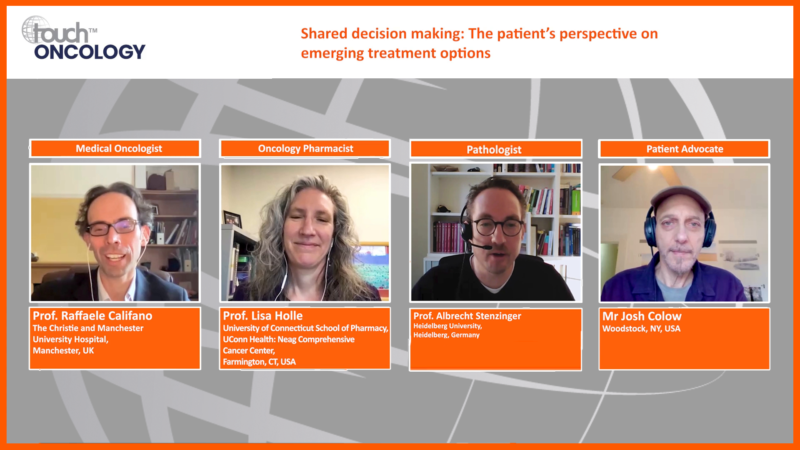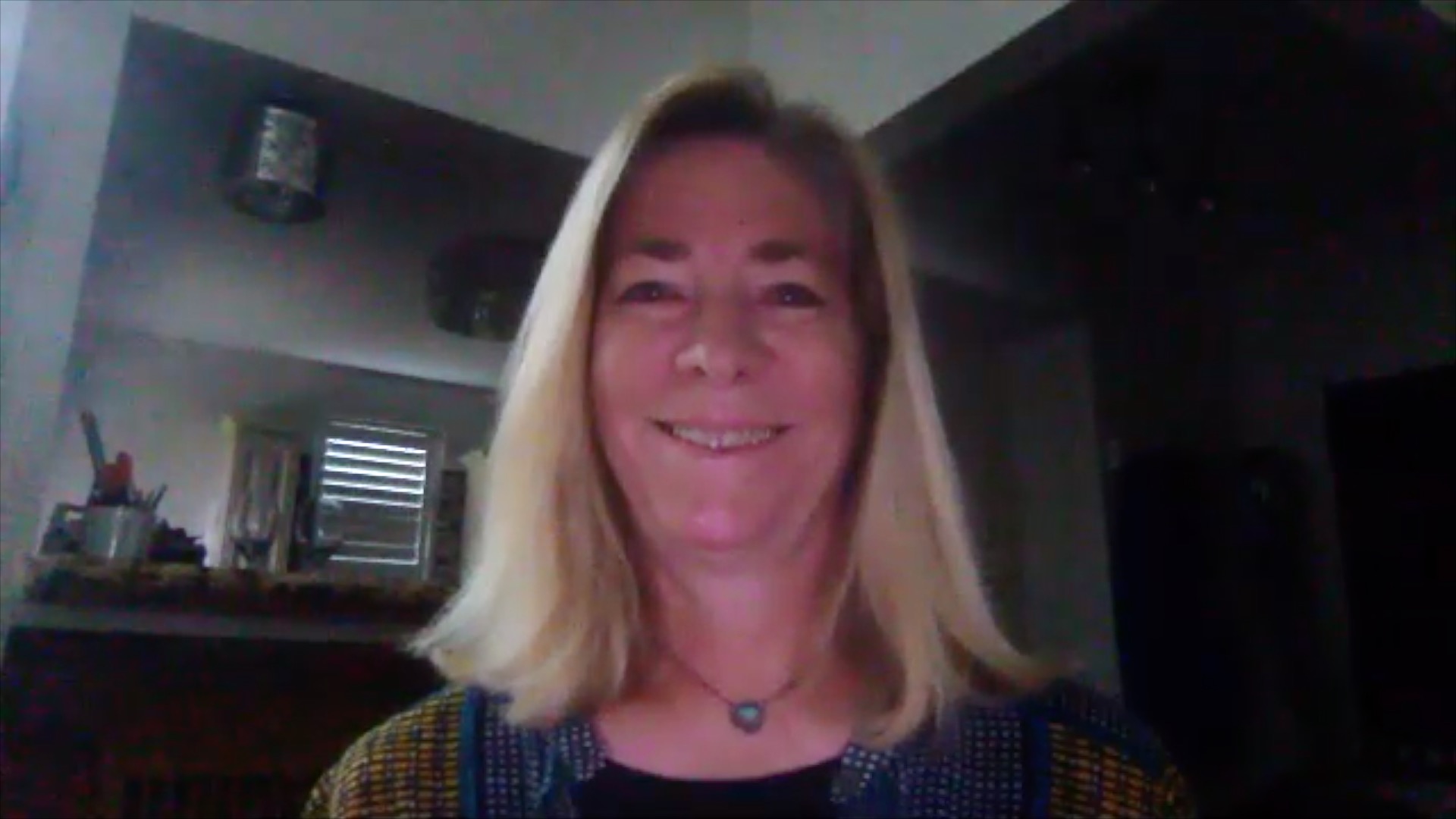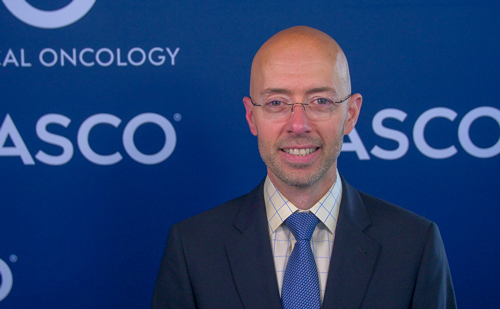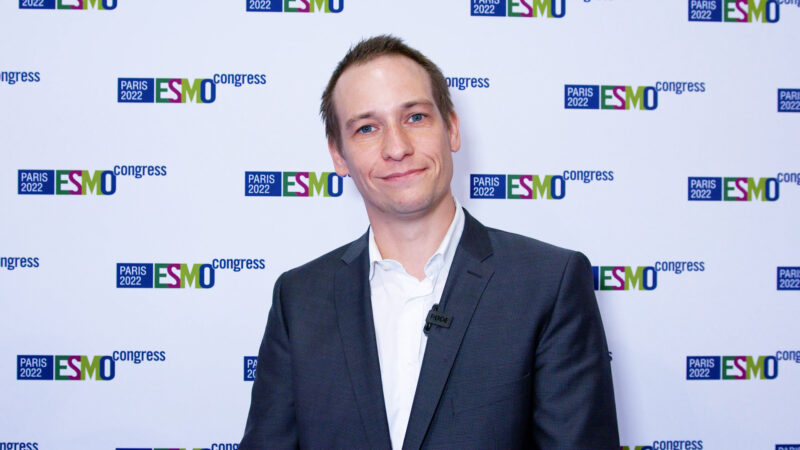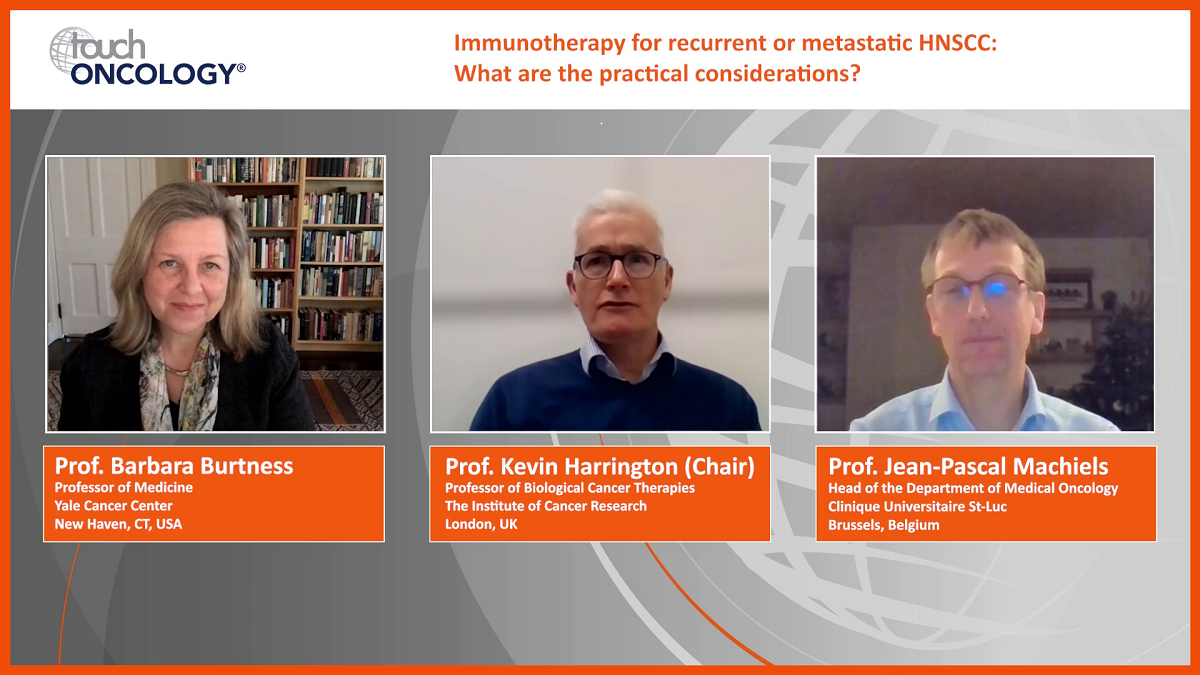touchPANEL DISCUSSION
 A visually engaging discussion designed to emulate a ‘live’ panel experience and provide clinicians with practical expert insights to address their clinical challenges. Useful tips below will show how to navigate the activity.
Close
A visually engaging discussion designed to emulate a ‘live’ panel experience and provide clinicians with practical expert insights to address their clinical challenges. Useful tips below will show how to navigate the activity.
Close
 A visually engaging discussion designed to emulate a ‘live’ panel experience and provide clinicians with practical expert insights to address their clinical challenges. Useful tips below will show how to navigate the activity.
Close
A visually engaging discussion designed to emulate a ‘live’ panel experience and provide clinicians with practical expert insights to address their clinical challenges. Useful tips below will show how to navigate the activity.
Close
Adverse event identification and management in locally advanced/metastatic urothelial carcinoma
Learning Objectives
After watching this activity, participants should be better able to:
- Identify adverse events promptly in patients receiving immunotherapy or targeted therapy for locally advanced/metastatic urothelial carcinoma
- Use appropriate management strategies for the adverse events that arise in patients receiving immunotherapy or targeted therapy for locally advanced/metastatic urothelial carcinoma
- Apply a multidisciplinary approach to the identification and management of adverse events in patients receiving immunotherapy or targeted therapy for locally advanced/metastatic urothelial carcinoma
Overview
In this activity, an oncologist, urologist and nurse specializing in the management of patients with urothelial carcinoma provide their perspectives on the identification and management of adverse events linked to immunotherapies and targeted therapies, with a focus on antibody–drug conjugates, fibroblast growth factor receptor inhibitors and immune checkpoint inhibitors. The discussion is guided by pre-canvassed questions provided by healthcare professionals involved in the management of patients with urothelial carcinoma.
This activity is jointly provided by USF Health and touchIME. read more
Target Audience
This activity has been designed to meet the educational needs of oncologists, urologists and oncology nurses involved in the management of urothelial carcinoma.
Disclosures
USF Health adheres to the Standards for Integrity and Independence in Accredited Continuing Education. All individuals in a position to influence content have disclosed to USF Health any financial relationship with an ineligible organization. USF Health has reviewed and mitigated all relevant financial relationships related to the content of the activity. The relevant relationships are listed below. All individuals not listed have no relevant financial relationships.
Faculty
Dr Axel Merseburger discloses: Advisory board or panel fees from Astellas, Bayer, Ipsen, Janssen, Merck, MSD, Pfizer, Recordati, Roche, Takeda and Telix. Speaker’s bureau fees from Astellas, Bayer, Ipsen, Janssen, Merck, MSD, Pfizer, Recordati, Roche, Takeda and Telix.
Dr André Fay discloses: Advisory Board or Panel fees from AstraZeneca, Ipsen, Janssen, MSD, Novartis and Roche. Grants/research Support from Foundation Medicine. Stock/shareholder (self-managed) in Bio Pharma.
Ms Maria Lapuente has no relevant financial disclosures in relation to this educational activity.
Content reviewer
Carolina Leon – APRN has no relevant financial relationships to disclose.
Touch Medical Directors
Hannah Fisher has no financial interests/relationships or affiliations in relation to this activity.
Gregory Philp discloses: Employee or independent contractor relationship: Oxford Pharmagenesis/AstraZeneca (Relationships Terminated)
USF Health Office of Continuing Professional Development and touchIME staff have no financial interests/relationships or affiliations in relation to this activity.
Requirements for Successful Completion
In order to receive credit for this activity, participants must review the content and complete the post-test and evaluation form. Statements of credit are awarded upon successful completion of the post-test and evaluation form.
If you have questions regarding credit please contact cpdsupport@usf.edu.
Accreditations
Physicians
This activity has been planned and implemented in accordance with the accreditation requirements and policies of the Accreditation Council for Continuing Medical Education (ACCME) through a joint providership of USF Health and touchIME. USF Health is accredited by the ACCME to provide continuing medical education for physicians.
USF Health designates this enduring material for a maximum of 1.0 AMA PRA Category 1 CreditTM. Physicians should claim only the credit commensurate with the extent of their participation in the activity.
The European Union of Medical Specialists (UEMS) – European Accreditation Council for Continuing Medical Education (EACCME) has an agreement of mutual recognition of continuing medical education (CME) credit with the American Medical Association (AMA). European physicians interested in converting AMA PRA Category 1 CreditTM into European CME credit (ECMEC) should contact the UEMS (www.uems.eu).
Advanced Practice Providers
Physician Assistants may claim a maximum of 1.0 Category 1 credits for completing this activity. NCCPA accepts AMA PRA Category 1 CreditTM from organizations accredited by ACCME or a recognized state medical society.
The AANPCP accepts certificates of participation for educational activities approved for AMA PRA Category 1 CreditTM by ACCME-accredited providers. APRNs who participate will receive a certificate of completion commensurate with the extent of their participation.
Nurses
USF Health is accredited as a provider of nursing continuing professional development by the American Nurses Credentialing Center’s Commission on Accreditation.
A maximum of 1.0 contact hour may be earned by learners who successfully complete this continuing professional development activity. USF Health, the accredited provider, acknowledges touchIME as the joint provider in the planning and execution of this CNE activity.
Date of original release: 31 May 2023. Date credits expire: 31 May 2024.
If you have any questions regarding credit please contact cpdsupport@usf.edu.
To obtain the CE/CME credit(s) from this activity, please complete this post-activity test.
Claim CreditYou may also be interested in...

REGISTER NOW FOR FREE ACCESS TO
- 1000+ topical and insightful peer-reviewed journal articles
- 100+ hours of bite-sized congress highlights
- 8 major therapy areas packed with the latest scientific advances
- 150+ specialties offering learn-on-the-go medical education
- + Concise email updates and newsletters so you never miss out








